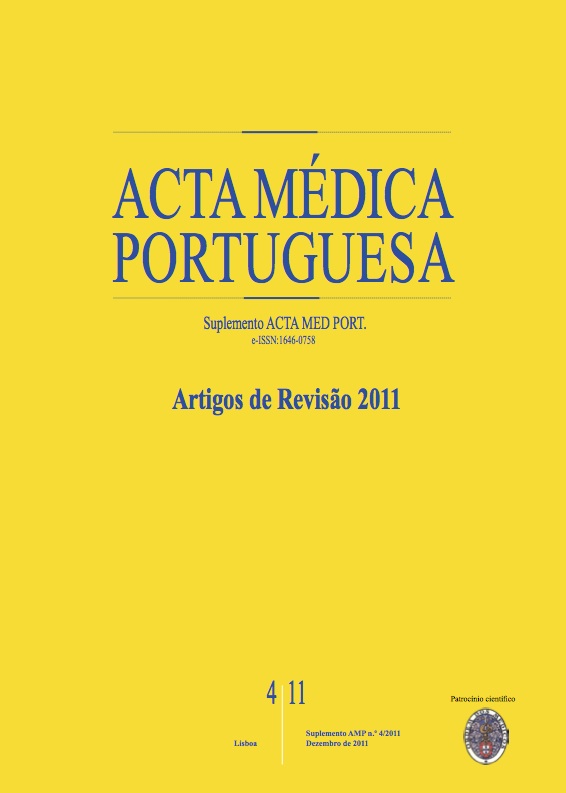Anemia in Chronic Kidney Disease: from facts to clinical practice.
DOI:
https://doi.org/10.20344/amp.1584Abstract
Anemia in Chronic Kidney Disease (CKD) is present in approximately 90% of patients with glomerular filtration rate below 25-30 mL/min. It's impact in the quality of life makes it one of the major problems in CKD patients. Although the etiology is multifactorial the suboptimal production of erithropoietin caused by renal mass loss appears to be of major importance. After the introduction of Erythropoiesis Stimulating Agents (ESA's) the treatment of anemia in CKD has changed dramatically. Today, ESA's have a fundamental role in the increase of Hb values in CKD. Previously, severe anemia was frequent and blood transfusions were often necessary to improve patients quality of life. Small observational studies performed during the late 80's suggested that high Hb values may be benefic in CKD patients. At that time, the use of ESA's became universal. Later randomized trials tried to show the positive impact of rising Hb levels with ESA's in patient's outcome. The results of such studies were disappointing. Some of them even documented higher mortality associated with near normal Hb levels, failing to prove the real benefit of the complete correction of CKD anemia. We're still waiting for new randomized trials to be elucidated about the optimal target of Hb to achieve in CKD and the treatment algorithm with ESA's. Current evidence suggests that Hb values must be targetted at 11-12 g/dL, without reaching the complete correction of anaemia.Downloads
Downloads
How to Cite
Issue
Section
License
All the articles published in the AMP are open access and comply with the requirements of funding agencies or academic institutions. The AMP is governed by the terms of the Creative Commons ‘Attribution – Non-Commercial Use - (CC-BY-NC)’ license, regarding the use by third parties.
It is the author’s responsibility to obtain approval for the reproduction of figures, tables, etc. from other publications.
Upon acceptance of an article for publication, the authors will be asked to complete the ICMJE “Copyright Liability and Copyright Sharing Statement “(http://www.actamedicaportuguesa.com/info/AMP-NormasPublicacao.pdf) and the “Declaration of Potential Conflicts of Interest” (http:// www.icmje.org/conflicts-of-interest). An e-mail will be sent to the corresponding author to acknowledge receipt of the manuscript.
After publication, the authors are authorised to make their articles available in repositories of their institutions of origin, as long as they always mention where they were published and according to the Creative Commons license.









